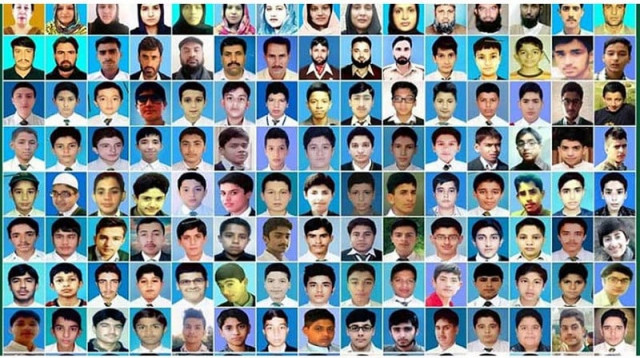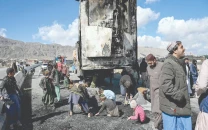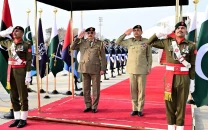Pakistan unbowed to terror nine years after APS
Pakistan’s anti-terror fight continues to safeguard nation, thwart enemy designs

As Pakistan observes the ninth anniversary of the terrorist attack on the Army Public School (APS) in Peshawar on December 16, the nation stands resilient, demonstrating an unwavering commitment to combating terrorism and safeguarding its citizens.
The inhumane attack in 2014 witnessed militants targeting APS, resulting in the loss of over 140 lives, primarily students and teachers.
Described as Pakistan’s 9/11, the day serves as a reminder of Pakistan’s enduring dedication to countering the menace of terrorism and ensuring the safety of its people.
Following the APS attack, the country’s civil and military leadership united to formulate a comprehensive National Action Plan. This plan led to significant operations, including Zarb-e-Azb and Radul Fassad, aimed at eliminating terrorists and securing the nation.
Despite the global proliferation of terrorism, Pakistan stands out as one of its most severe victims. With a sacrifice of over 70,000 lives and an economic loss surpassing $150 billion, the nation remains steadfast in its determination to eradicate this menace.
Various waves of terrorism have swept through Pakistan’s major cities, but Peshawar endured the greatest impact, with the APS attack standing out as the most devastating incident in the city's history.
Pakistan has consistently asserted that India is a sponsor of terrorism on its soil, presenting a detailed dossier containing specific information such as bank accounts and the involvement of Indian nationals.
The dossier also highlighted the locations of training camps for groups like Tehreek-e-Taliban Pakistan (TTP) and Baloch miscreants.
According to a security analyst, India's intelligence agency, RAW, invested $1 million in merging TTP with four other terrorist groups to carry out terrorism in Pakistan.
The analyst said that India had also been funnelling money to Baloch separatists and activists through think tanks in Afghanistan and other means.
The government of Pakistan has also repeatedly exposed India for its involvement in terror attacks aimed at disrupting the China-Pakistan Economic Corridor (CPEC). RAW makes substantial investments in different militant groups for this purpose.
The mastermind of the APS attack was Mullah Fazal Ullah while the other collaborators included Gul Zaman Orakzai, Omar Narai and Muhammad Khurasani who were in touch with RAW and NDS handlers in Afghanistan.
On this anniversary, the nation, including its leadership and civil society, pays tribute to the martyred children and teachers, acknowledging their sacrifices.
The day reinforces the country's resolve against terrorism, with a renewed call for the interim Afghan government to take action against terrorist outfits, including TTP, and to put an end to the misuse of Afghan soil against Pakistan.
As the nation commemorates the APS attack, it sends a clear message that terrorism will not deter its commitment to peace and security



















COMMENTS
Comments are moderated and generally will be posted if they are on-topic and not abusive.
For more information, please see our Comments FAQ